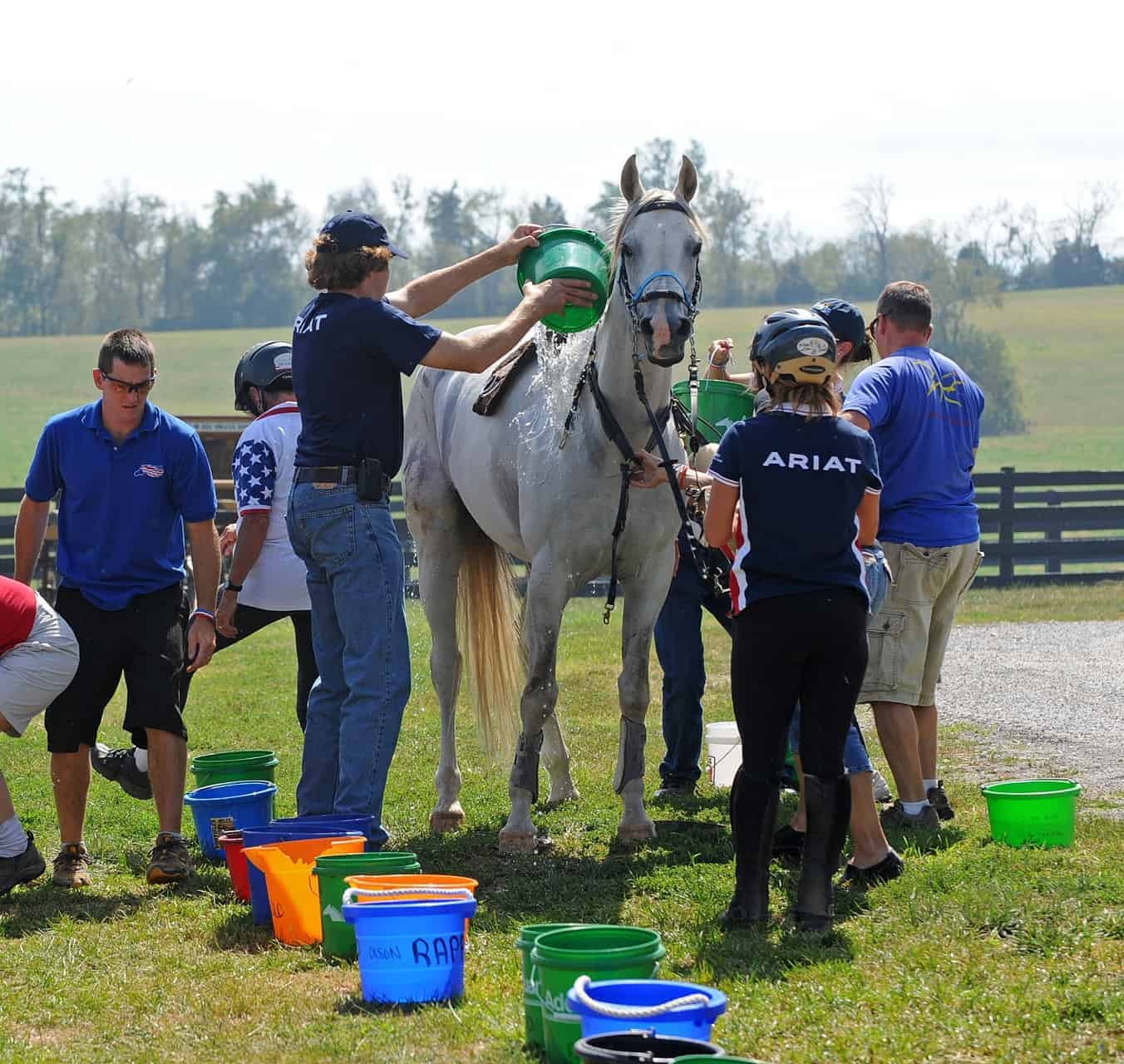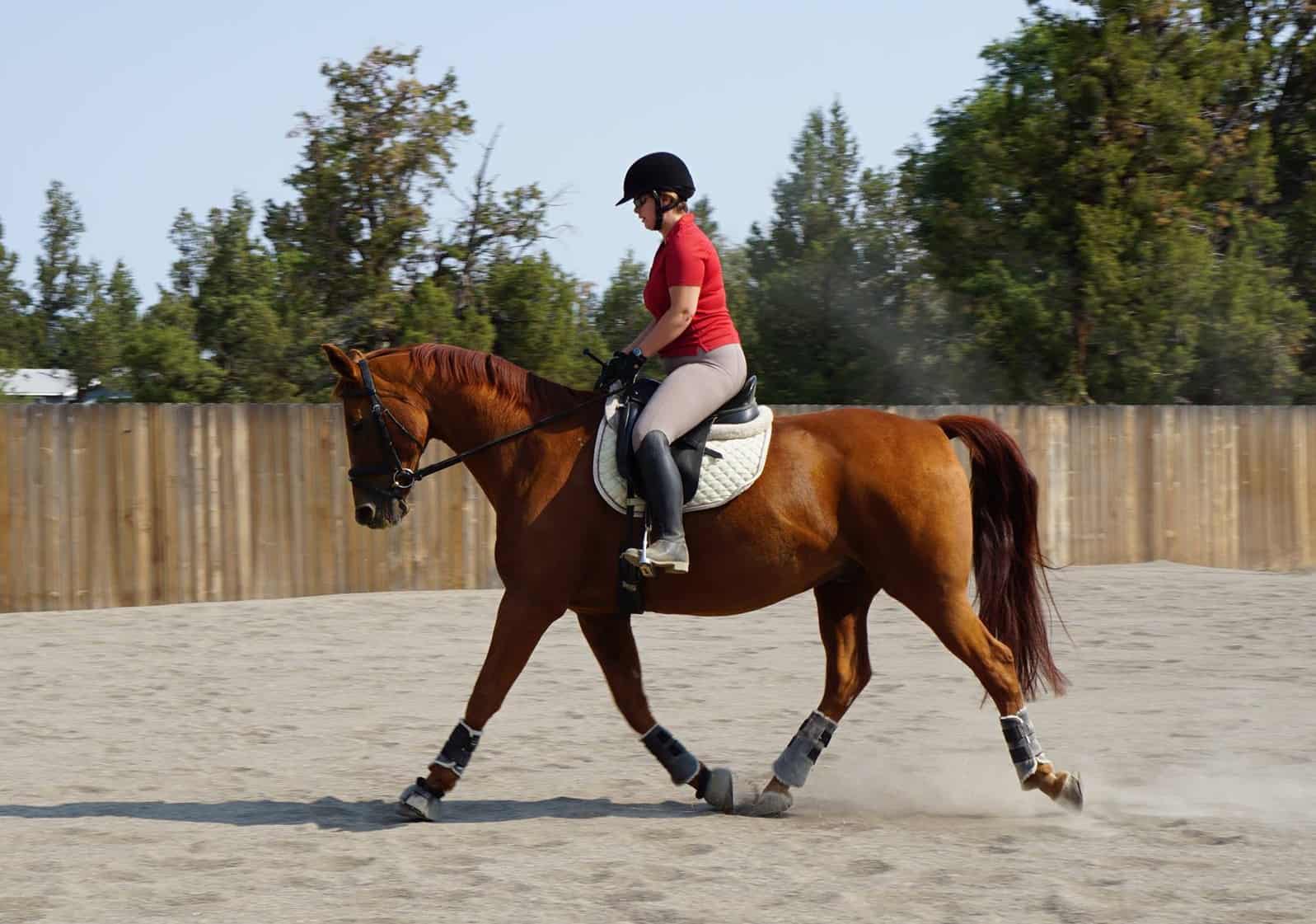When Endurance Horses Colic: What Vets Need to Know

Colic prevention, early intervention, and proper management during competition can mean the difference between life and death for endurance horses, said Yvette Nout-Lomas, DVM, PhD, Dipl. ACVIM, ACECC, assistant professor of equine internal medicine at Colorado State University’s Veterinary Teaching Hospital.
Nout-Lomas presented the paper “How to Treat Endurance Sport Horses With Colic at Competitions” at the 2017 American Association of Equine Practitioners Convention, held Nov. 17-21 in San Antonio, Texas. American Endurance Ride Conference (AERC, the U.S. governing body for endurance) veterinary chair Jeanette Mero, DVM, of Mariposa Equine Services, in California, co-authored the study, in which they reviewed AERC data, including recorded equine fatalities related to endurance competition.
During endurance rides, mandatory veterinary inspections take place between ride phases (about every 15 miles) to ensure horses can continue safely down the trail. At these inspections, veterinary officials evaluate horses’ heart rates, dehydration status, presence of gut sounds, and gait. Elimination is most commonly related to lameness, dehydration, and metabolic issues, Nout-Lomas said
Create a free account with TheHorse.com to view this content.
TheHorse.com is home to thousands of free articles about horse health care. In order to access some of our exclusive free content, you must be signed into TheHorse.com.
Start your free account today!
Already have an account?
and continue reading.

Written by:
Michelle Anderson
Related Articles
Stay on top of the most recent Horse Health news with











